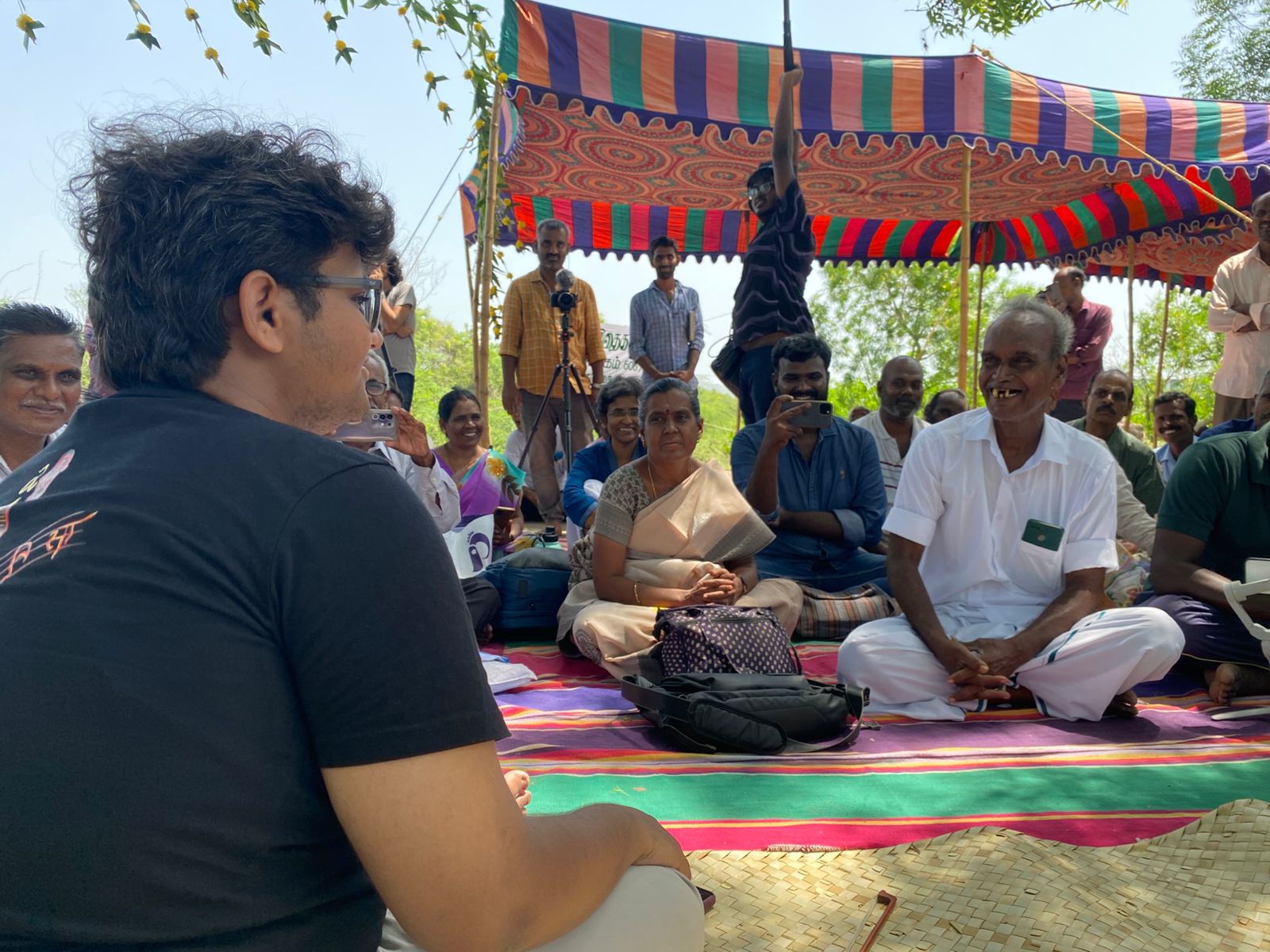Sudarshan Chariar has been interning at Samanvaya this summer. He is pursuing Economics and Politics at the Ashoka University and is currently doing the internship as part of his summer break. He will write later on the experience and insights. The first part of his submission (below) is on reading of Hind Swaraj, the basic Gandhian work. As someone reading this for the first time and recording his impressions, this offers a fresh perspective on the work.

When I first read M.K. Gandhi’s Hind Swaraj, each new chapter felt like a slap in the face. There were arguments so polemic, so unapologetically radical, that I couldn’t help but smirk in disbelief. Gandhi calls modern civilisation a sin. He blames the institution of railways for famines, because they enable the export of grain away from starving regions. He attacks lawyers for deepening conflict, and doctors for making humans dependent on medicine rather than understanding their own bodies. As someone raised within the comforts of upper-caste privilege, surrounded by ideas of “national development,” legal recourse, and scientific progress, these statements felt ungrateful—if not absurd. Hadn’t we been taught to hail civilisation as a triumph? That’s what I’d always believed.
Reading Hind Swaraj gave me a rare chance to stop and examine the scaffolding of the world I live in: the institutions I passively use each day, the food I consume without question, the services I consider essential. Gandhi’s concept of ‘civilisation’ isn't just about machines or colonial systems—it’s a deeper critique of a worldview born from the Industrial Revolution, where science became a tool for humanity to dominate nature, and where fulfilment meant the ability to satisfy every want through innovation, speed, and consumption. It’s this very logic—this addiction to comfort, conquest, and convenience—that Gandhi says corrupts our moral centre. Initially, I resisted this reading. My instinct was to say: these ideas can’t work. We can’t abandon railways. Doctors are needed. Lawyers uphold justice. Voluntary poverty and perfect chastity seem impossible asks. But over time, I began to understand Hind Swaraj not as a political manual, but as a counter-civilisational vision—where progress is measured not in GDP or gadgets, but in self-restraint, duty, and truth.
My own life, I realised, had become a living example of the “civilisational disease” Gandhi describes. I relied on Amazon Prime for my material needs, Zomato for my meals, and social media for both connection and distraction. The speed of consumption had become the rhythm of my life. In Gandhi’s terms, I wasn’t living—I was merely moving fast. I had grown accustomed to treating my body like a machine - medicating it when it broke down, numbing discomfort, ignoring exhaustion. In Hind Swaraj, Gandhi writes that civilisation “seeks to increase bodily comforts, and it fails miserably even in doing so.” His critique of doctors is startling not because it dismisses medicine, but because it reveals how dependence on medicine divorces us from natural feedback - hunger, pain, rest, discipline. This is what some scholars call the “medicalisation of the body”: where we are no longer taught to listen to our bodies, but only to fix them. Gandhi’s concern is not with healing, but with the loss of self-rule. His whole political philosophy swaraj is built on the idea that freedom must begin with mastery over the self. How can we govern a country, he asks, if we cannot govern our appetites?
Anthony Parel, in his critical edition of Hind Swaraj, notes that Gandhi’s critique is not a nostalgic plea for returning to the past, but a radical reimagining of progress. Gandhi recognized that Western civilisation, born from the Industrial Revolution, had transformed science into a tool of domination - over nature, over the body, and over the moral compass of human beings. What shocked me most was how accurate this diagnosis felt today. I’ve traded home-cooked meals for algorithmic delivery, intuition for diagnostics, and community for convenience. Gandhi’s warning wasn’t against machines, but against becoming machines ourselves - running endlessly to fulfill desires that multiply the more we satisfy them.
By shifting the measure of progress from GDP to self-mastery, from speed to duty, I am able to imagine an entirely different kind of modernity. One where the question isn’t “What more can I have?” but rather, “What is enough?” That question continues to unsettle me in the best possible way...
Comments
Dear Sudarshan, This is an…
Dear Sudarshan,
This is an especially eloquent, fresh, insightful, succinct commentary from a contemporary perspective!!!
Reading it from my own situation, here in the United States, it helps drive home a key point about Gandhi. He is typically viewed as a nationalist trying to liberate India from the British, in a HIND swaraj. But this is simply because the British were the dominant imperial force at the time. His real concern was with the emerging global civilization they provided the spear point for. And the fundamental aim that he sought and that we all need desperately to pursue now is a GLOBAL swaraj that will liberate us from the disease of of this global civilization that has infected every nation on the planet. We need seek an Global swaraj in pursuing a Wiser Earth instead of rushing, madly towards a so called "Smarter" planet.
Thank you for these remarks. And all the best in your continued work with Samanavaya!!!!!
Add new comment